The Cambridgeshire dentist who nearly quit amid long days and growing backlogs
- Published
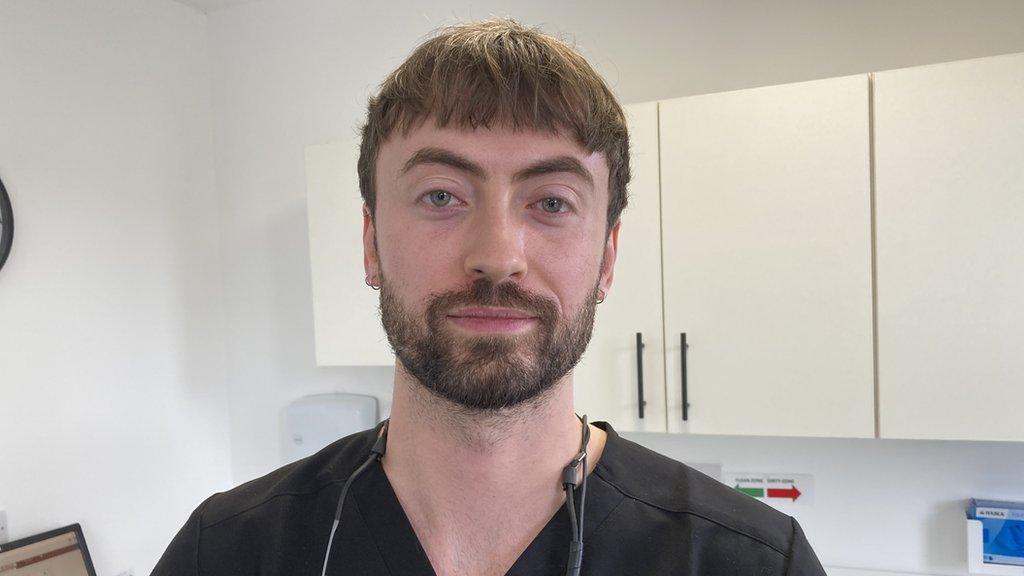
Dentist Jack Slaymaker came close to leaving dentistry because of pressures at work, long hours and patient frustration
Faced with a mounting patient backlog and 12-hour work days, 28-year-old Jack Slaymaker came very close to quitting his career as a dentist.
Having started work at March Dental Surgery in Cambridgeshire after graduating in 2019, Mr Slaymaker tells of a growing frustration among patients over getting a dental appointment.
And when they do manage to be seen, Dr Slaymaker said, they often take out that frustration on the dentist in front of them.
"I had two friends who quit [dentistry] just after the pandemic," he says.
Despite the five years of university study, Dr Slaymaker said if something did not change he would walk away from dentistry.
He now works as a private dentist at the same practice.
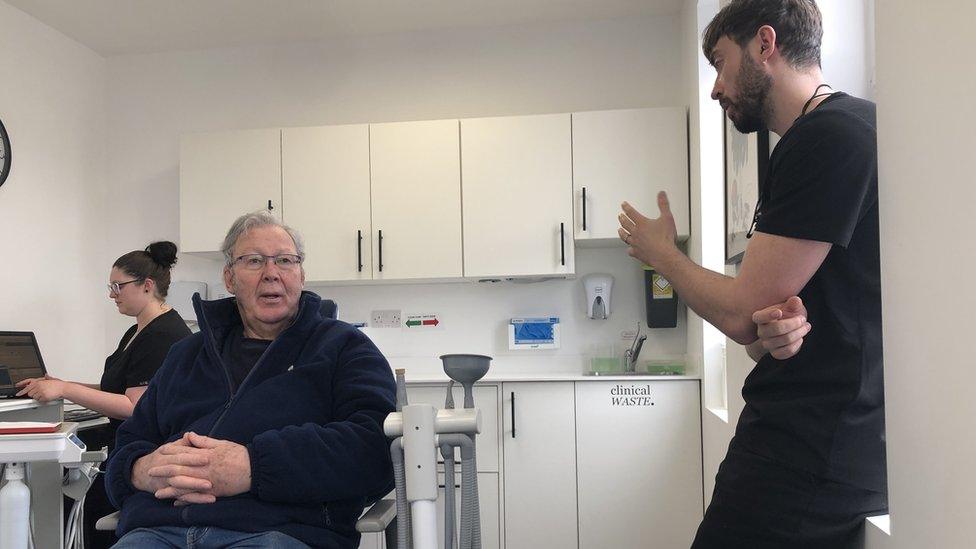
Dr Slaymaker does treat NHS patients but is "mainly on the private side"
He has more time to plan for each patient and spread his workload out. This, he said, has helped him with his mental health.
"My work satisfaction is better now because we have access to a lot more materials and options," said Dr Slaymaker.
"Unfortunately the NHS is very over-subscribed and under-resourced, so makes it difficult.
"I still do a little bit of NHS but I'm mainly on the private side."
The British Dental Association (BDA) recently found 50.3% of dentists in England had reduced their NHS work since the start of the pandemic, external. It also suggests 74% of dentists in England intended to reduce the amount of NHS work this year.
Association chairman Eddie Crouch said government funding for dentistry had "been frozen" and claimed that in "real terms" it was "worth less than it was a decade ago".
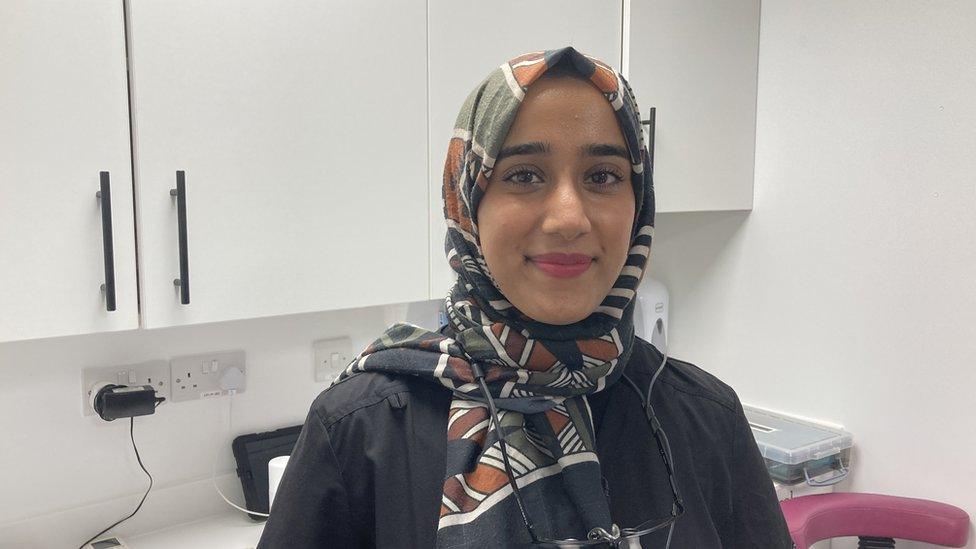
Noor Zaidi, a foundation dentist at March Dental Surgery in Cambridgeshire, is considering doing private treatment over NHS
Newly qualified dentist Noor Zaidi, 28, also works at the March practice and said she had noticed the often huge differences in pay between NHS and private work.
For root canal treatment, the practice can expect to receive £140-£196 for between two and four hours of work. The surgery said it paid its dentists £56-£98 of that.
The figure dentists are paid for NHS root canal treatment increased in November. However, dentists say it's not enough.
Under private dental care, the surgery would charge the patient about £600.
"That might be a shock but that's a reasonable representation of what it will take to provide that treatment and what the NHS is paying us is nowhere near to that figure," said practice owner Dr Dipali Chokshi.
"It's no longer viable.
"I think that the whole contract needs a reform on multiple levels. More money needs to be put into NHS dentistry. The contract itself needs to be revised so it's fairer for patients as well as for dentists."
"The cost of living crisis is hitting every business in its own way and we are no different.
"What we charge privately enables us to cover our costs but also maintain our training and education to make sure we are at the frontline of treatment, that we're providing and doing it to the highest standard possible."
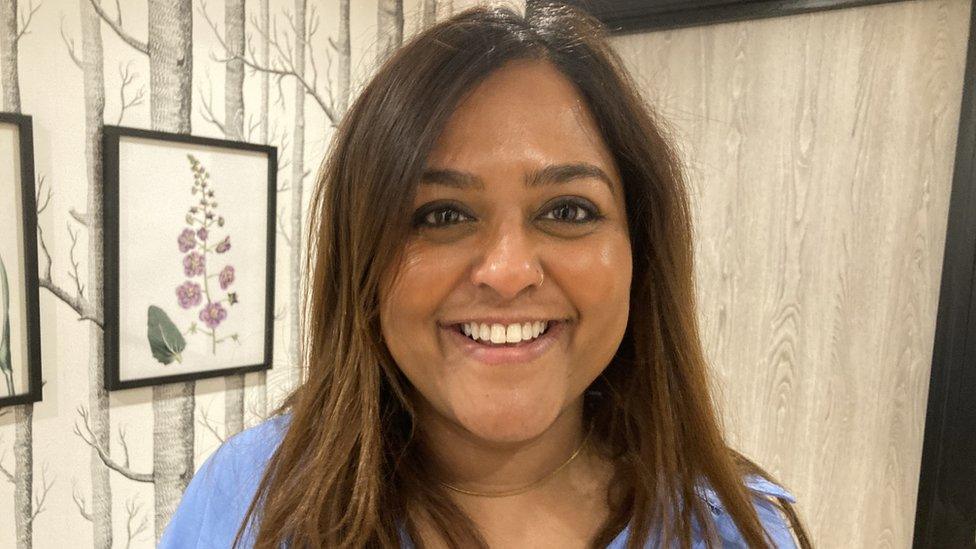
Dr Dipali Chokshi, owner of March Dental Surgery in Cambridgeshire, says recruitment is a big issue
Earnings are only part of the problem facing dentistry, Dr Chokshi said.
"The dental workforce is dwindling, partly because of Covid, partly because of Brexit, partly because the universities aren't churning out as many dentist students as they once did."
The shortage of dentists has led to some practices closing shop.
My Dentist on Upper Goat Lane in Norwich closed last year and said it was due to recruitment.
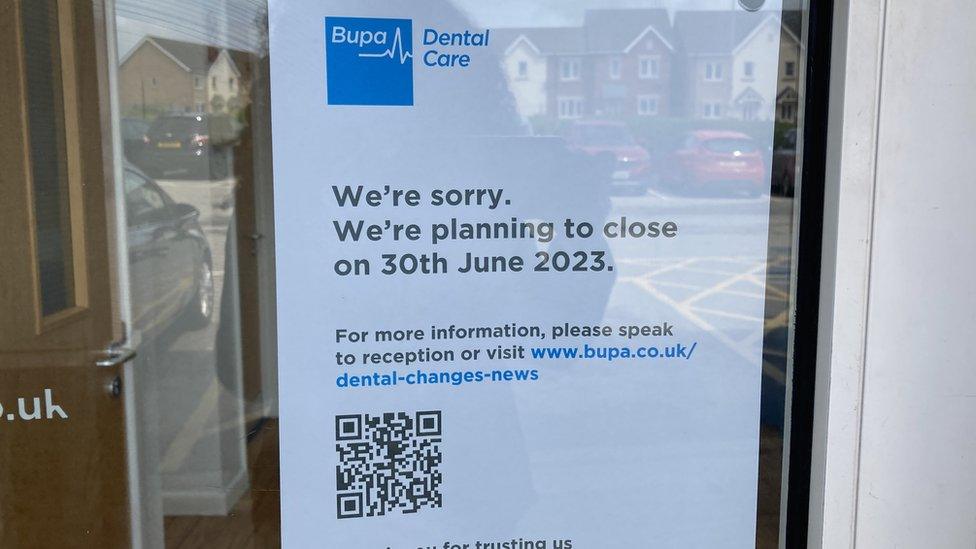
Bupa Oakley Vale Dental practice in Corby says it will close on 30th June 2023
In March healthcare provider Bupa said it would close, sell or merge 85 practices because of recruitment issues.
The company said it was a "difficult decision" and said it was "due to a lack of dentists" as well as "increased running costs caused by inflation and high energy prices".
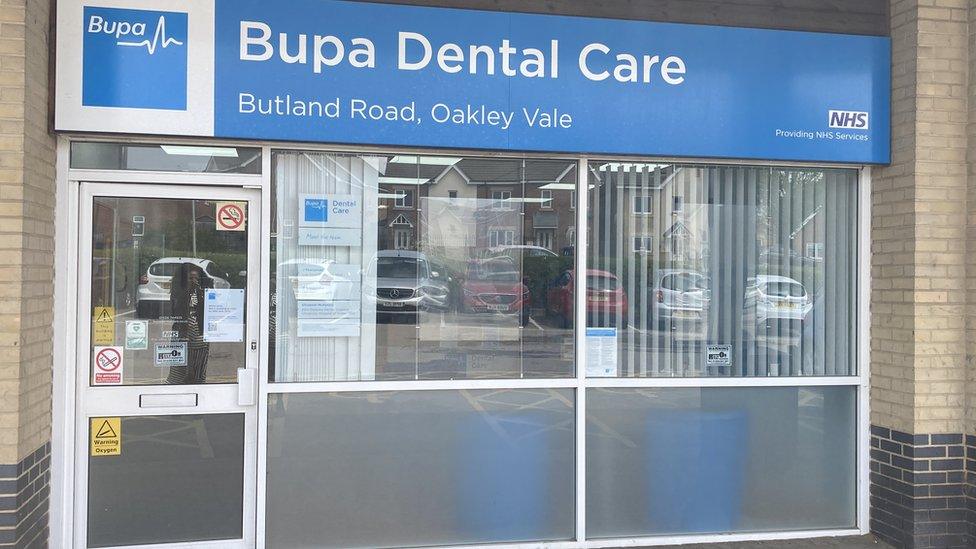
Bupa Oakley Vale Dental practice in Corby says it will close on 30 June 2023
The government said it had reformed the NHS dental contracts to improve access, which came into force in November 2022.
A spokesperson for the Department of Health and Social Care said: "We are working to improve access to NHS dental care by investing more than £3bn a year.
"We reformed the NHS dental contract to encourage more dentists to provide NHS treatments and allow dental therapists and hygienists to offer extra services, and increased the amount practices receive for high-need patients.
"There were over 500 more dentists delivering NHS care in 2022 than in 2021, but we know there is more to do and we will be announcing further measures to improve access across the country soon."
During a recent debate in Westminster, health minister Neil O'Brien said dentistry reform was the "number one issue" he was working on and the issues accessing NHS dentistry were most "acute" in the East of England.

Find BBC News: East of England on Facebook, external, Instagram, external and Twitter, external. If you have a story suggestion email eastofenglandnews@bbc.co.uk or get in touch via WhatsApp on 0800 169 1830